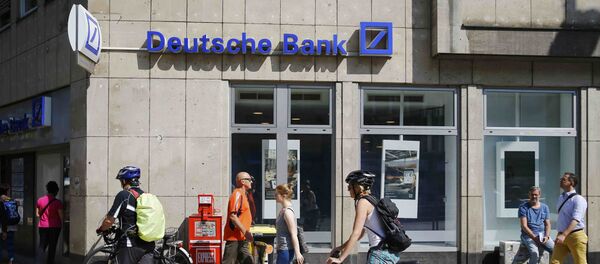The US financials are capitalizing on the recent wave of massive appreciation of fixed-income assets, driven by the rife demand for US Treasury notes as investors at home and overseas have run for safety in the wake of the Brexit turmoil, US elections uncertainty, sluggish growth and international headwinds.
Yet again, Wall Street met the news with little enthusiasm, and Morgan's CEO cautioned shortly after the Q2 results were announced that sustainable upward trends in the performance of companies in the US financial sector are scarce.
The stronger-dollar environment, sluggish growth and negative interest rates policies (NIRP) exercised most prominently in the Eurozone and Japan have all contributed to declines in the profitability of US-based financial services enterprises. The rebound in earnings posted by Goldman and Morgan in the second quarter is being seen as temporary, providing little relief to the markets.
However, analysts and market participants were expecting a more dramatic plunge, to $0.60 per share.
Morgan Stanley's profit dropped 12 percent in 2Q16, with own trading earnings down 7.1 percent year-on-year to $3.26 bln from $3.5 bln. However, if the accounting adjustment is excluded, trading revenues dropped only 2 percent annualized. Morgan's investment banking division posted 23 percent losses, thus explaining the recent layoffs, to $1.11 bln from $1.44 bln in 2Q15.
Equity and fixed-income underwriting earnings crashed 40 percent to $0.611 bln from $1.02 bln a year prior.
On the upside, merger and acquisition (M&A) consulting fees rose 17 percent year-on-year, to $0.497 bln from $0.423 bln. Morgan's trading revenues beat estimates at $3.45 bln versus $3.12 bln. Fixed-income, currencies and commodities (FICC), as noted above, outperformed previous expectations, and so did the equities division, due to the massive recent Wall Street rally and I-banking.
"We've seen Morgan Stanley cut back and cut back so it's very impressive that we're seeing this fixed-income performance," Brad Hintz of New York University's Stern School of Business said on Bloomberg Radio broadcast.
However, despite solid results reported, Morgan Stanley CEO James Gorman said there is little ground for optimism as the current developments do not suggest there is a sustainable trend forming in the financial services industry.
"Yes, it's a good number this quarter," Gorman said. "Let's see how it plays out over not each individual quarter, but over the next couple of years."
Morgan Stanley stock, however, added 1.8 percent on the news.
Morgan Stanley could have performed better in Q2 due to the bond market fever, but fixed-income trading is not Morgan's main business. The bank mostly trades stocks, which have been subject to massive fluctuations, thus bringing major uncertainty in the bank's performance estimates.






